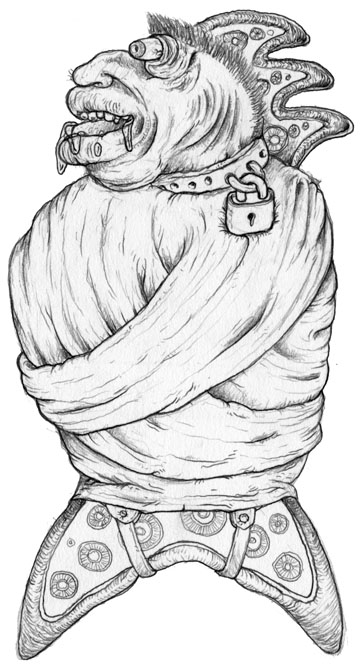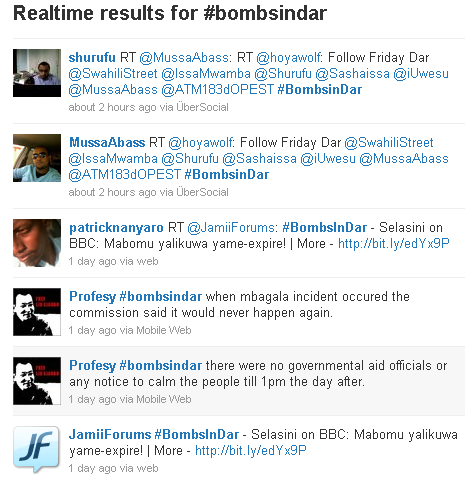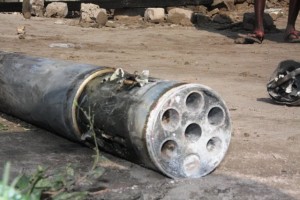By Gauree Mdee

The current state of affairs is nothing short of dubious and ambiguous. This is not said with reference to people in governmental positions, or to an army whose subterfuge extends beyond the dwellings of residents to the concern of neighbors; or about faceless people who provide power for the nation; or even for citizens who are tear gassed for reasons unknown moments after leaving the courthouse escorting their candidate back to his office (news that was snubbed or covered haphazardly by all TV stations, with no exception during the prime time news).
The “cavalier” somewhat impetuous actions of our law enforcers aren’t even the issue being addressed here. The puerile idea that what’s going on in North African nations could trickle down to a nation whose people are deemed too servile by their neighbors and their own for any sort of uprising, isn’t the issue either. This piece is not to poke at the spiel given by governmental officials every other day either.
This is about the neophyte nature by which the media, especially electronic conduct themselves of late. For anyone who has been following closely, especially televised events of recent times, you may have noticed a sharp contrast between the way the internet responds and the way electronic media react.

The deplorable nature by which the electronic media covered events of the Gongo la Mboto military base explosions one might say it is relatively disappointing. More information was obtained from the internet, a source that has less than 10% of the population receiving their news from, within the first eight hours. Almost every television station that went on to report the event the following day aired footage of the night before, some even more transcendent than the previous nights’ information providers, which begs the question, where was this footage on the actual night?

One member of the cyber world was quoted calling this “the biggest event in Tanzania this year”, so why the perfunctory display from our professionals? Juxtaposing technology with the poor dissemination of information could be fair defense, but for those of us who are not pundits of matters governance in this country, you may have noticed the odd yet effervescent nature by which students strikes and Minister of Works deadlines set for suspected officials were covered. To date, no real follow up to both of these cases has been made.
One of the fundamentals of journalism taught in media institutions worldwide is the value of timeliness. It is already known that justice delayed is justice denied — is it fair to fair to say that the same is applied for news?
We must know as professionals that such delays could call for pernicious actions by a people already teetering on the edge from ongoing occurrences.
Related posts/articles:


Question is, how many qualified and reputable newsmen and women are there in Tanzania? The journalists who aren’t afraid to risk their jobs for the sake of fair and critical coverage of events happening in the country? One thing to note, most media houses are owned by special interests so it is always difficult to professionally cover events requiring investigative journalism. No wonder Mkapa used to despise Tz journalist; he used to assume they were not professional enough. Few that have really tried to really prove themselves like Jenerali Ulimwengu were threatened to be stripped off their citizenship amongst other threats. However, I’m still proud of the job he does, not afraid of his life and stying true to his nature and career…always defending the will of the people.
mmmmh this is the second post I’ve seen making claims for social media’s role (twitter, in particular) as… as what exactly? News gatherer? Disseminator? A platform for curators? The list of tweets given in the post are two ‘follow friday…’ type things, two unsourced claims and one link to the BBC, posted twice. I was on twitter more than most those days and learned one substantial thing there: that the blasts were at GlaMb army base (and one woman I know with no computer or enabled phone found out quicker than me). That was it.
Coverage by mainstream media was poor and slow. but it was much better than anything on twitter at least, which was just a platform for pointing to msm news sources or complaining about same. I love social media, bet let’s be realistic.
I see the spectre of “national security” scapegoat manifesting itself in the media vividly through this tragedy. I don’t think we have a technology issue, more like self censorship and lack of initiative.
Every journalist in the know knows not to poke his/her nose im matters of the military, and those who don’t know enough to be daring are not the influential editors. I guess nobody wants to be Kubenea-d or even worse Katabalo-ed.
Even some bloggers, who are supposed to be on the forefront of demanding transparency, have an unhealthy fear of the military. Here goes Elsie from “The Mikocheni Report”
The real tragedy is, even if you choose to give our journos a pass for Gongo la Mboto, allowing the despicable “No Hurry in Africa” philosophy to rule, we still don’t have a comprehensive investigative journalistic report on the events that led to the Mbagala explosions some two years ago !.
As I watched the YouTube videos, the president smiling in a buddy buddy way with his military cronies – he still fancies himself a military man, The RPC carelessly swinging on an ITV high chair while issuing confusing and condescending mangimeza decrees, the president censoring the taking of his picture as if he was aware that he would look too comfy for the occassion, it became clear to me that this is just a tip of the iceberg, and that the real tragedy is with our modal attitude as a people.
I was like, you know what? I am not even gonna sweat this, people died, let me focus on that. But now I am glad somebody raised this. This is a depiction of a fatal flaw in our medias priorities and sense of responsibility.
If we don’t have anything comprehensive for Mbagala, which happenned some two years ago, how can we expect a timely coverage of Gongo La Mboto, which is hardly two weeks ago?
Some friends, in a sarcastic way – too sarcastic to my taste- were already taking bets on which one would blow next, Lugalo, Upanga etc. I had to pose a hypothetical that what if somebody’s next of kin died and they read this grotesque sarcasm? they got my point.
But I see what they were getting at. What have we learned from Mbagala and Gongo La Mboto? Nada!
What is to stop a repeat? Nada!
http://www.youtube.com/watch?v=j4G7oribxDY&feature=related
http://www.youtube.com/watch?v=uFl1wVZ0rlM&feature=related
@Swahilistreet the list of tweets given is not part of the write up, I suppose the VijanaFM editor just put it up for aesthetics, though I see how it can be misleading.
Agree with @Msangi about there being a lack of initiative. But I also think there is a problem with how this initiative lacks in bridging different forms of media.
It seems there are less bloggers who are also journalists, and more bloggers who are simply interested. For those of us who are simply interested, we should have a source for reporting standards, which in my opinion should (but currently does not) come from media houses. For journalists, the online world should provide a gateway into the views of the diaspora.
This, in contrast with BBC blogs for example, needs to change. As TZ sees a shift in the use of newer information/media/communication technologies, media houses should step it up and accomodate their journalists to report in multple fashions. Further, they should accomodate their public viewers to provide feedback through these multiple fashions (calling in, tweeting, commenting online, sending letters, etc.)
This would apply to any news coverage, including issues concerning the military.
@ KB — Thank you for clearing things up. And sorry for any misunderstanding caused by the tweets on the image above; it’s sorted now. I didn’t want to just copy the tweets posted at daraja.org…
@ Peter, this ‘pole pole ndio mwendo’ attitude (‘they’ are doing it on purpose, me thinks) will do us more harm sooner rather than later. Why holding back important information? Why not even trying to give people some sorta assurance? The silence yields panic most of the time, that’s why people have no choice but to rely on FB and twitter — unfortunately, most of us haven’t learnt how to report properly… for instance, a small thing like stressing the fact that some news is not confirmed or just a rumor can make a huge difference.
@ Msangi, mbona umetutupa hivi mkuu? Majukumu? Naona unamwaga kuku kwenye mchele wengi kama kawaida yako! Hapa kama unavyojua maoni ya watu hayachujwi, ila almanusura “niimichuzi” comment yako…
@Swahilistreet, I presume the other post you’re referring to was my post on the Daraja blog: http://is.gd/nHNbAL. If so, the intention there was more to assess the performance of traditional media using Twitter as evidence, rather than to sing Twitter’s praises per se. And this post here is also more about critiquing traditional media than about Twitter (As @KB also said).
My post did stray that way towards the end, it was actually more with Facebook and Jamii Forums in mind – they provided me with the most useful information in the first hours.
I agree that at a more focussed and critical assessment of social media’s contribution is still missing. My quick and dirty analysis is as follows: All were pretty poor at distinguishing fact from rumour. They did a bit better at sourcing information from people on the ground (particularly if “on the ground” means in Dar, and you’re up country where traditional media had nothing at all). As you suggest, a comparison with traditional social media (word of mouth, telephone, etc.) would also be useful. But at the very least, Twitter, Facebook and JF all provided valuable platforms for public debate.
I look forward to seeing someone explore this further. As for me, I need to get back to some real work.
There is nothing wrong with the state of journalism per say since the whole nation is in the same mental state. The president’s press release which should have definitely caused a public uproar in any country didn’t even get enough air time with the internet free thinkers let alone the official media. While other presidents get pictures doctored to gain public trust, ours doesn’t mind going with a jovial mood even in a state of calamity. And why should he, when the people themselves don’t?
(http://www.cbsnews.com/8301-503543_162-20016679-503543.html)
We have all heard the banter about Mafisadi papa. Why is nobody talking about mafisadi dagaa? Let me tell you, because most of Tanzanians are mafisadi dagaa and if given a chance will upgrade to mafisadi papa. The deceit about seminars, work trips, posho about meetings which never happened and all kind of bribes all over the country shows that we don’t really mind these fisadis, as long as they don’t take too much (as long as they don’t get caught?)
What is frustrating though is seeing the ‘supposedly’ opposition parties doing nothing about this mentality we have. An opposition MP who is a national hero ‘kwa kufichua ufisadi’, who talks continuously about personal accountability and responsibility hasn’t paid his student loan given him some years back while he has been getting a 12M tax free paycheck in the last 5 years. Do we care? No, it’s so trifle, why bother about such a trivial subject when there are fisadi papas to ‘worry’ about?
Then why do we expect the journalists to be any different? Aren’t they from us? I feel like we live in illusions, expecting a skyscraper when we have been digging a mud house foundation.